Top 10 MarTech Tools and Data-Driven Strategies to Focus on 2024
Even if we deny believing it, we can’t change the fact that 2023 is almost over. December is officially in full swing, and the holiday season is around the corner, so marketers and business owners are working tirelessly to reach their 2023 target numbers by the end of the year.
Including AI, 2023 has seen the emergence of various Martech (marketing technology) trends. As the martech landscape continuously shifts, keeping your marketing strategy adaptable is very essential. Therefore, in this article, we’re going to cover the top Martech tools and strategies heading into 2024, so you can set your businesses up for remarkable growth.
Let’s dive into our topic!
Top 10 Martech Strategies to Focus on 2024
Marketing technology, or Martech, is a rapidly evolving industry that leverages technology to enhance and streamline marketing efforts. Integrating effective Martech strategies can significantly improve efficiency, personalisation, and overall campaign performance. Here are the top ten Martech strategies that businesses can consider in 2024.
01. Customer Segmentation with AI
Customer segmentation with AI involves using advanced AI algorithms and machine learning techniques to analyse large sets of customer data and identify meaningful patterns or segments within the customer base. The goal is to divide customers into distinct groups based on similarities in behaviour, preferences, demographics, or other relevant factors.

Customer segmentation helps you tailor your marketing messages and campaigns for each segment of your customer base, which can improve your customer engagement.
02. Predictive Analytics
Predictive analytics is an advanced branch of analytics that utilizes statistical algorithms, machine learning, and data mining techniques to identify the likelihood of future outcomes based on historical data. It involves analysing patterns, trends, and relationships within the data to make predictions about future events.
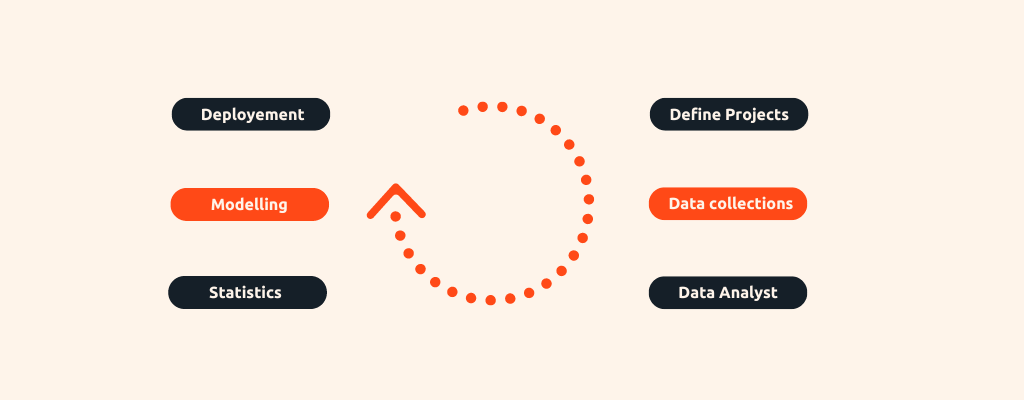
Predictive analytics is widely used across various industries for decision-making, risk assessment, and strategic planning. Predictive analytics is a powerful Martech strategy for optimizing marketing efforts, enhancing customer experiences, and improving overall campaign effectiveness.
03. Chatbots and Virtual Assistants
Chatbots and virtual assistants are both types of conversational agents that use natural language processing (NLP) and artificial intelligence (AI) to interact with users to improve customer interactions, automate processes, and provide personalized support.
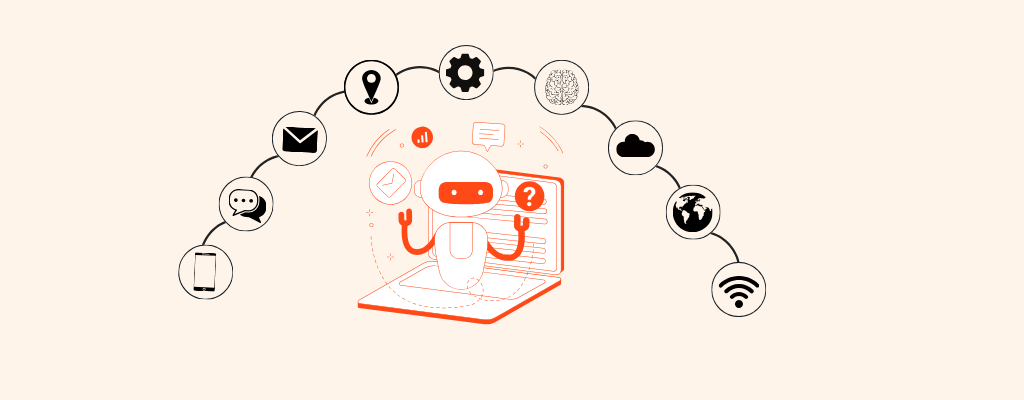
Businesses can leverage these martech technologies to enhance user engagement, improve customer service, and streamline various tasks.
04.Personalized Content Recommendations
Personalized content recommendations in Martech refer to the practice of leveraging data and technology to provide tailored content suggestions to individual users or target audiences. This approach is widely used to enhance user engagement, improve the customer experience, and drive conversions.
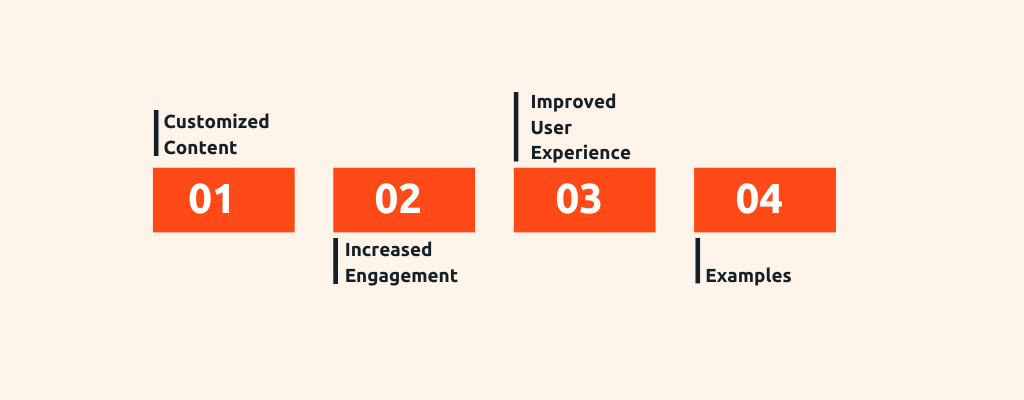
Implementing personalized content recommendations at Martech requires a combination of advanced analytics, machine learning, and integration with various marketing channels. As technology evolves, you should continue to explore innovative ways to deliver more personalized and relevant content to your audiences.
05. Marketing Automation
Marketing automation refers to the use of technology and software platforms to streamline, automate, and measure marketing tasks and workflows. This approach is designed to improve efficiency, enhance customer engagement, and ultimately drive revenue.
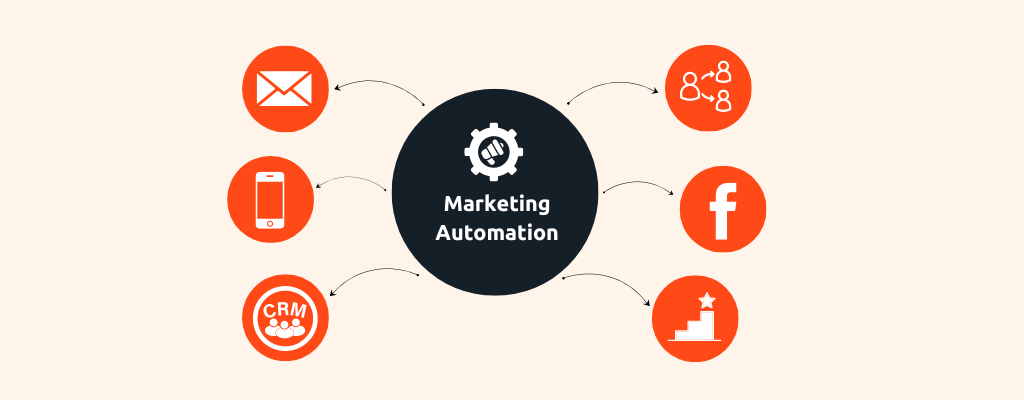
Marketing automation platforms, often integrated into a broader Martech stack, enable marketers to scale their efforts, improve targeting, and deliver a more personalized and efficient customer experience.
06. Dynamic Pricing Optimization
Dynamic pricing optimization in Martech refers to the use of technology and data analytics to adjust prices in real time based on various factors, such as demand, competition, and customer behaviour. This approach allows businesses to maximize revenue, respond to market changes, and optimize pricing strategies dynamically.
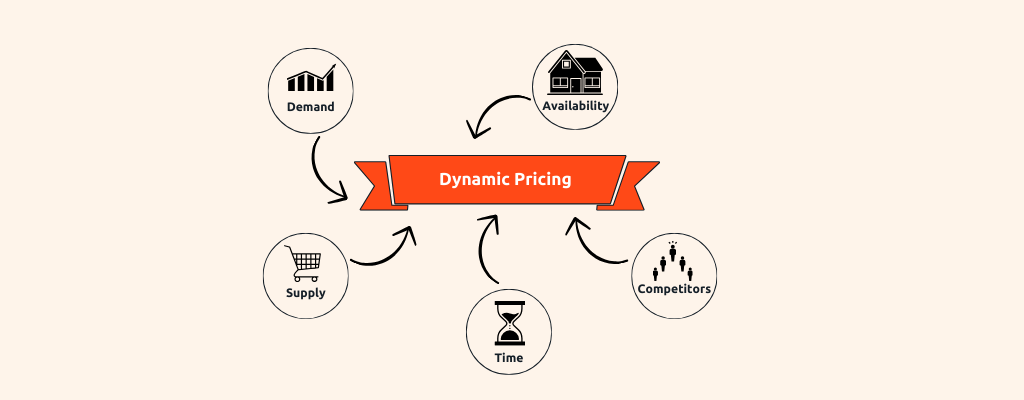
Dynamic pricing optimization is particularly prevalent in industries such as e-commerce, travel, hospitality, and retail, where market conditions can change rapidly. Implementing dynamic pricing strategies requires a combination of advanced analytics, machine learning, and seamless integration with relevant technologies to achieve optimal results.
07. Voice Search Optimization
Voice search optimization is the process of optimizing digital content, websites, and marketing strategies to improve visibility and relevance for voice-activated search queries.
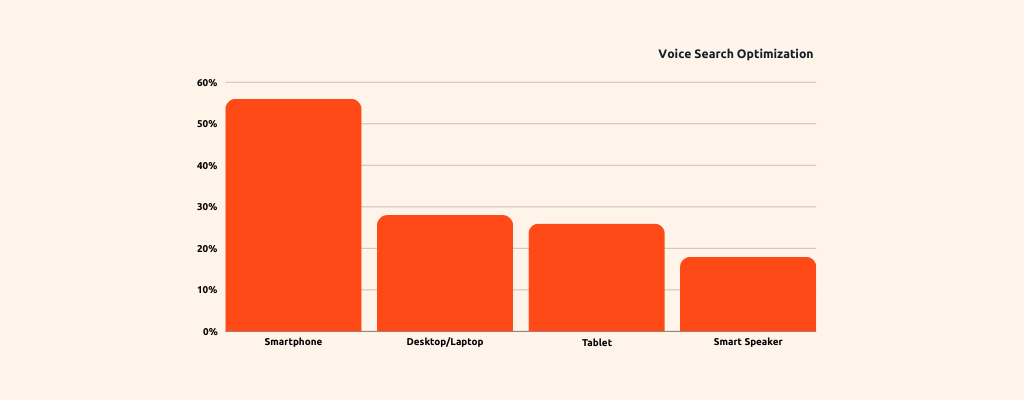
With the increasing popularity of voice-enabled devices and virtual assistants like Siri, Google Assistant, and Amazon Alexa, optimizing for voice search has become essential for businesses to reach their target audience effectively.
08. Augmented Reality (AR) and Virtual Reality (VR) Experiences
Augmented reality (AR) and virtual reality (VR) are immersive technologies that have the potential to transform marketing experiences within the Martech landscape. They offer unique ways to engage users, enhance brand interactions, and provide personalized and memorable experiences.

AR and VR technologies are continually evolving and offering innovative ways for marketers to connect with their audience and create compelling brand experiences. As these technologies become more accessible, their integration into marketing strategies will provide new avenues for customer engagement and brand differentiation.
09. Sentiment Analysis for Social Media
Sentiment analysis in social media involves the use of natural language processing (NLP) and machine learning techniques to determine and understand the sentiment expressed in social media content. This analysis helps businesses gain insights into how people feel about their brand, products, services, or specific topics.
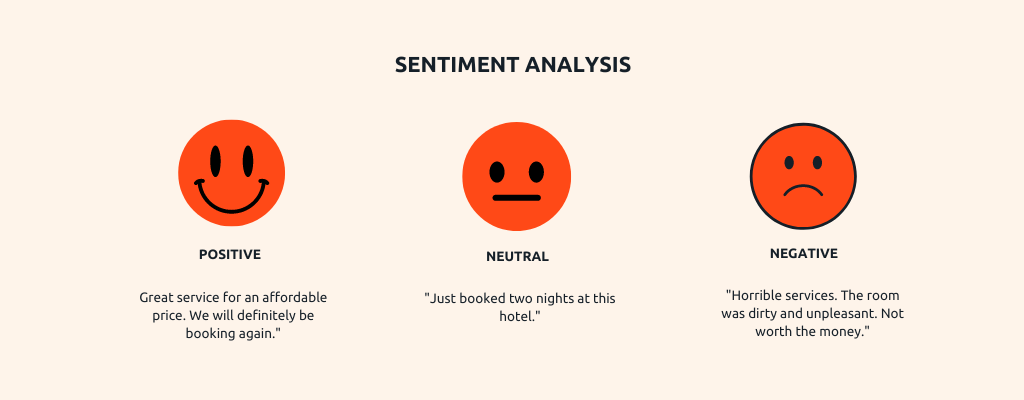
Sentiment analysis also enables businesses to proactively manage their online reputation, understand customer sentiments, and make data-driven decisions to enhance customer satisfaction.
10. Attribution Modeling with AI
Attribution modeling determines how different touchpoints in a customer’s journey contribute to conversions or desired outcomes. This process helps marketers understand the effectiveness of various marketing channels and optimize their strategies.
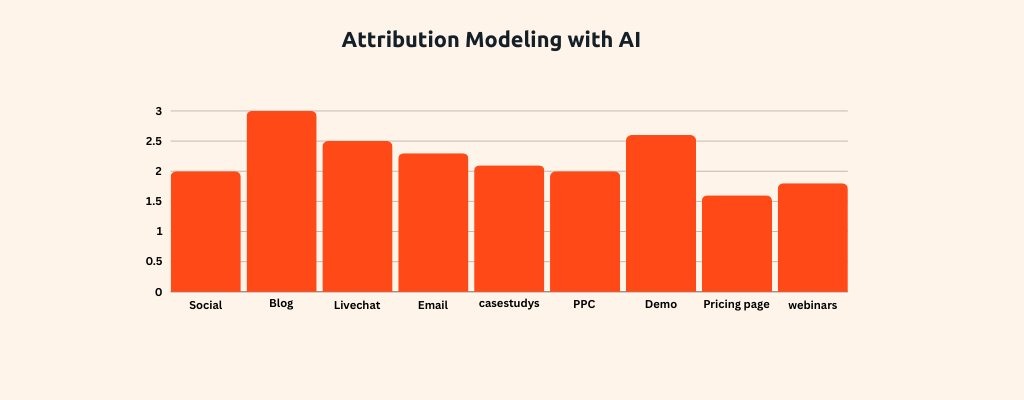
When AI is incorporated into attribution modeling, it brings advanced analytics and machine learning capabilities to improve accuracy and provide more granular insights. AI-powered attribution modeling also enables marketers to move beyond traditional rule-based models.
Integrating these Martech strategies can empower businesses to stay competitive, enhance customer experiences, and achieve more effective and efficient marketing results. However, analyze the nature of your business, target audience, and industry trends to choose the right Martech strategies for your business.
Top 10 Martech Tools to Consider for 2024
As you got to know the top Martech strategies, now it’s time to discover the Martech tools that will help you implement the Martech strategies effectively. Whether you are a marketer, strategist, designer, writer, or editor, here are the top 10 Martech tools to integrate into your Martech ecosystem.
Let’s check out the Martech tools one by one!
01. Marq
Marq (formerly Lucidpress) is brand enablement software meticulously designed to streamline and enhance your brand consistency. Marq’s web-based design and publishing tool allows users to create and collaborate on various types of visual content, such as brochures, flyers, social media posters, business cards, and more.
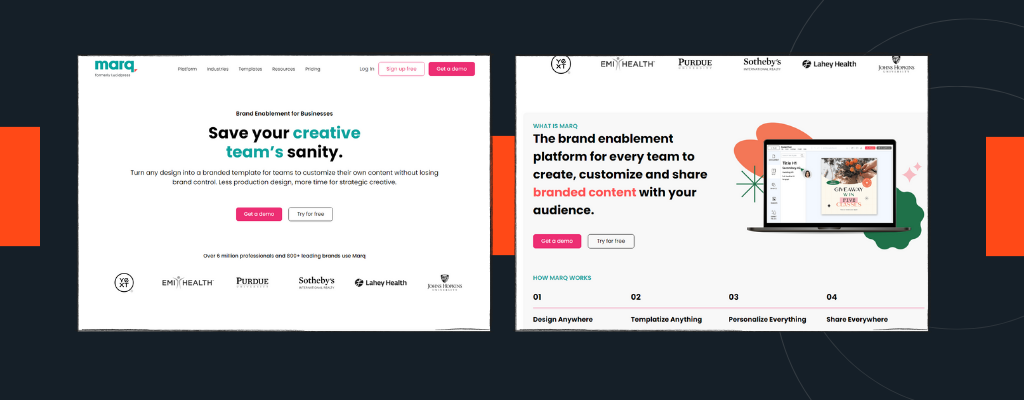
Marq allows you to create expertly crafted brand content and put it into a library where you have full control. You can even monitor how your logo is used, what colours are available, and how your content is created. That way, when your team creates content, you can rest assured that all the brand and content guidelines are being followed.
Pricing: Starts with a Free Plan
Pros
- Easy integrations
- User-friendly interface
- It is easy to create brand content and share them
Cons
- The free plan has limited features
- We need to deal with bugs and technical issues
02. Uberflip
Uberflip is a digital content experience platform and software that enables marketers to create digital experiences with content for every stage of the buyer journey. By creating an Uberflip Content Hub, users can include blog articles, social media content, videos, and eBooks into a responsive interface with CTAs. Uberflip helps you pull all your resources and content from third-party sites into one place and categorize it, making all your digitally owned assets easily accessible.
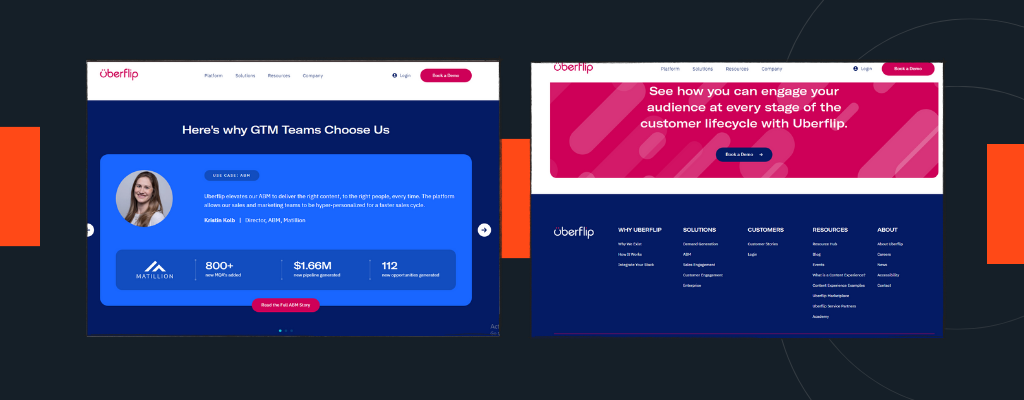
This way, you can get your content faster into your buyers’ “hands” and improve the customer experience automatically boosting your lead generation.
Pricing: Offers Custom Pricings
Pros
- Easy to curate and disseminate content
- Outstanding customer service
- Provide good user experience for both the admin side and the prospect side.
Cons
- CTA’s are tricky to build
- The number of Marketing Streams is limited to 50
03. HubSpot
HubSpot is a comprehensive marketing suite that contains the marketing, sales, customer service, operations, and website-building software and tools you need to grow your business. HubSpot integrates with collaboration tools like Slack and G Suite, enabling teams to improve and streamline communication internally and externally.
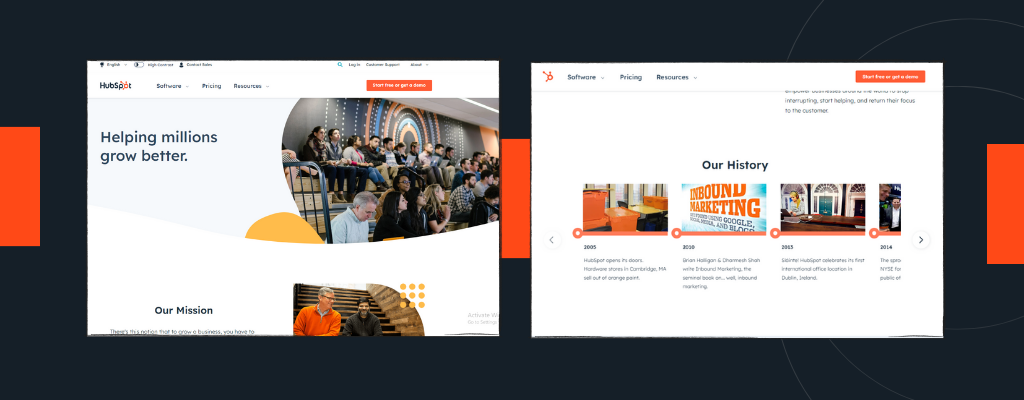
HubSpot can also integrate with hundreds of other third-party apps and tools, allowing marketers and businesses to easily build or expand their martech ecosystems.
Pricing: Starts at $20 per month (for individuals and small teams)
Pros:
- Robust CRM features that can be integrated with sales, marketing, support, and CMS.
- Easy-to-use interface
- Easy to integrate with other tools.
Cons:
- HubSpot only offers annual contracts. Hence, the entire amount for using its marketing automation solutions is to be paid at the beginning itself.
04. Google Analytics
Google Analytics is the undisputed leader in web analytics. It provides a wealth of data to help you understand your website’s performance, user behaviour, and conversion tracking.

For 2024, Google Analytics is focusing on enhancing its e-commerce tracking, user journey analysis, and introducing AI-powered predictive insights.
Pricing: Google Analytics is free to use, with premium versions available for larger enterprises. Premium pricing is based on your website’s traffic volume and specific needs.
Pros:
- An excellent free tool
- Simple to set up
- Manages multiple properties
- Regular updates with new features
Cons:
- Lack of customer support
- Gives a limited number of hits per month
- Lack of organic keyword data
05. Marketo
Marketo is a marketing automation tool by Adobe that helps nurture leads and prospects across all channels. It also offers the feature of AI building predictive audiences and segments. Be it personalized experiences with active listening or triggered content, Marketo can help you do it all.

Pricing: Starts at $895 per month, depending on the services you sign up for.
Pros:
- Thorough campaign and lead handling.
- Predictive content intelligence.
- Strong attribution and analytics.
- Perfect for intricate B2B advertising.
Cons:
- Not affordable for all individuals and companies.
- Difficult-to-use interface.
06. Optimizely
Optimizely is a leading customer satisfaction and review tool. With their services, you can create and launch tests to see what customers like and don’t like about your website. Use Optimizely to create tests, run experiments, and chat with users about what they want out of your website.
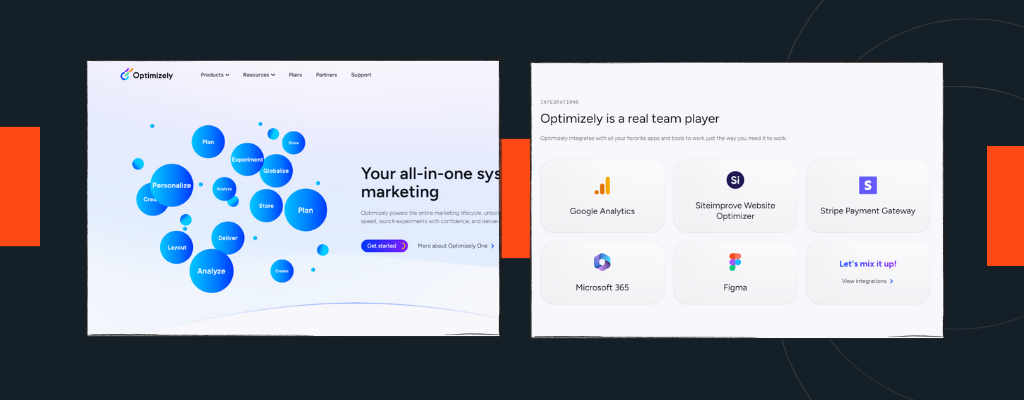
Since reviews are crucial to understanding your audience, a review tool is a must. Optimizely has replaced Google Optimize, becoming the tool of choice for the giant search engine.
Pricing: Offers Custom Pricings
Pros:
- Optimizely experimentation tool allows for quick setup and launch of tests.
- Easy-to-use interface
- Provides customizable features
Cons:
- Session-level metrics are not available
- Integrating third-party data sources is a bit challenging
07.Hootsuite
Hootsuite is a social media management platform that lets you combine all your social media tracking, publishing, and analytics in one place. Hootsuite also lets you create industry-appropriate content and schedule it in advance.

They have a special focus on users in health care, education, government, and other related industries. Plus, with AI technology, you can lessen your workload across the board.
Pricing: Starts at $99 per month
Pros:
- A one-stop social media hub for all social media platforms
- Suggest optimum post-times
- Easy to create, edit, and draft post
Cons:
- UI can sometimes be challenging to learn and use
- A bit pricey for a smaller company
08.Nutshell
Nutshell provides all-in-one growth software featuring CRM, email marketing, and contact management to help sales teams close more deals. You can use Nutshell for anything you need, including email marketing automation, customer data storage, lead tracking, conversation updates, and more. With Nutshell, you can overhaul your marketing process, qualify leads, and turn each visitor into a long-standing customer.
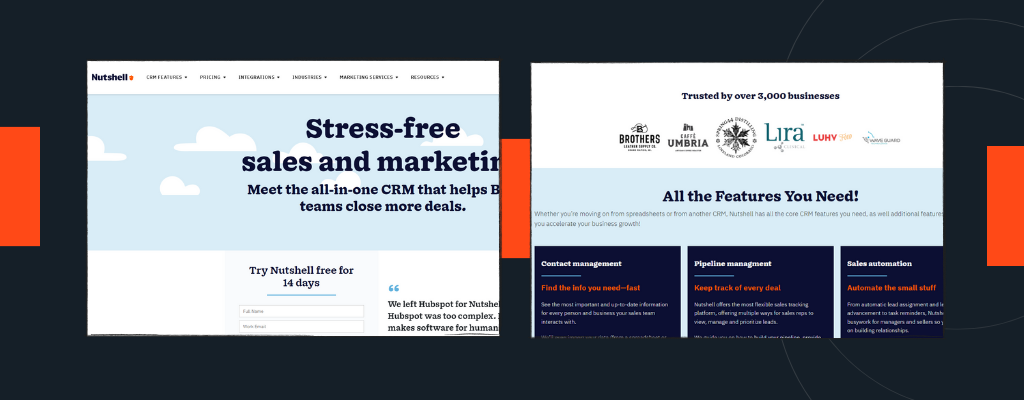
Pricing: Starts at $16 per month
Pros:
- An affordable CRM and email marketing plan
- Seamless integrations
- Easy-to-use interface
Cons:
- Need improvements in document storage
- Customizability on the dashboard is needed
09. SEMrush
SEMrush is your go-to solution for SEO and SEM success. Its feature set includes keyword research, site audits, backlink analysis, and competitive intelligence. In 2024, SEMrush is doubling down on local SEO tools, offering more advanced keyword research, and providing AI-driven content optimization suggestions.

Pricing: Starts at $99.95 per month
Pros:
- Make SEO reports quickly
- Ability to do an organic investigation of the competition
- Easy to monitor and manage Traffic Analytics
Cons:
- Hard to use on a mobile device
- It is difficult if multiple people need to log in to the same account
- Advanced features are expensive
10.BuzzSumo
BuzzSumo is your content research and social listening companion, helping you discover trending content, track social media performance, and find influencers in your niche. In 2024, BuzzSumo is set to roll out AI-powered content recommendations for more effective content strategies.
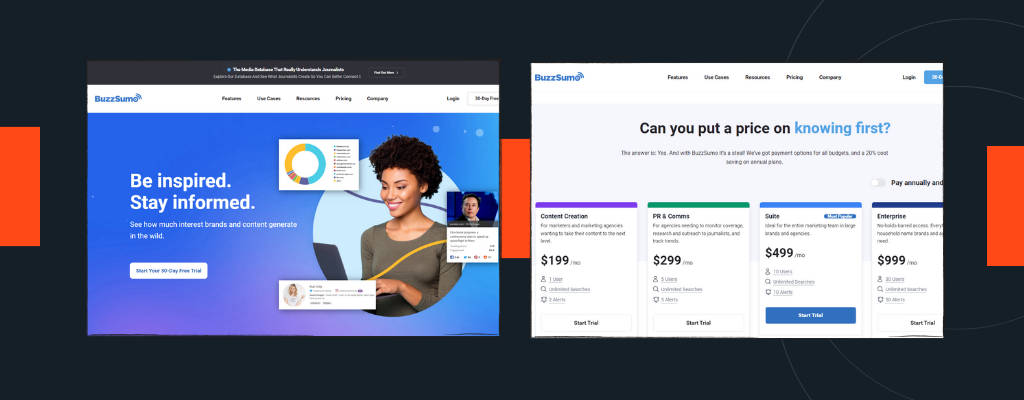
Pricing: It starts at $99 per month
Pros:
- Displays trending web and social content clearly with relevant metrics
- The influencer database and search are excellent.
- Allows you to keep track of your competitors
Cons:
- BuzzSumo filter could be a bit better
- The content curation feature could be improved
Wrapping Up
Over 11,000 martech tools are available on the market today. It can be overwhelming to decide which ones are right for your business. But when you have a full-stack marketing agency on your side, building your Martech stack is simple. If you want professional guidance while choosing, installing, and using your martech tools, Prime One Global is here to helpWe can help you leverage the top Martech tools and strategies for your marketing campaigns with the utmost effectiveness. Whether you want to optimize your marketing strategy or improve your social media campaign, we are here to earn data-driven results for your brand.
Want to learn how we generate ROI-based revenue for our clients? Contact us today!

